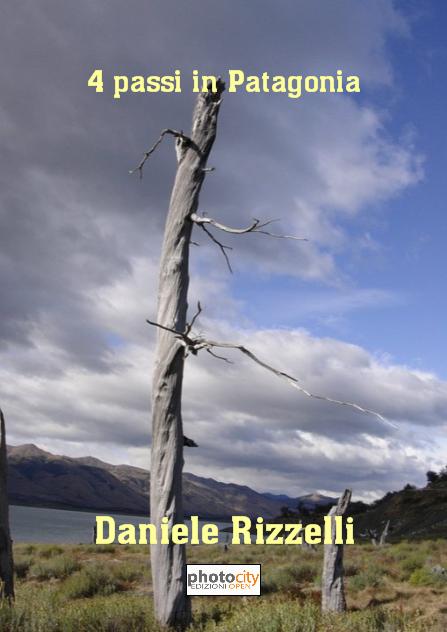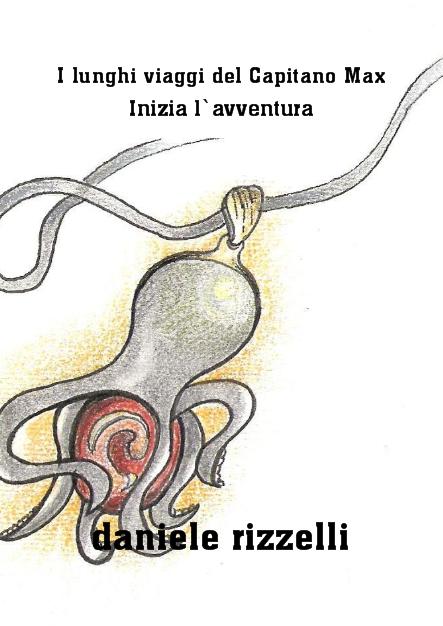La biologia marinaUn sorriso e una manciata di semi. E' così che si educa la gente |
PUBBLICAZIONI E ATTI A CONVEGNI 2019
2019
ü Rizzelli Daniele and Pagliarulo Lorella Pina, “Young Scientists Discovering Food Web: An IBSE (Inquiry Based Science Education) Activity at Zoo Delle Maitine (Benevento, Italy).” American Journal of Educational Research, vol. 7, no. 3 (2019): 194-198. doi: 10.12691/education-7-3-2.
ü Daniele Rizzelli, Lorella Pina Pagliarulo, Newton Fusco. Meeting the Educators’ Anxiety on Zoo Accreditation because of Conservation Education Standards (EAZA CES): the road to success is littered with caffeine and adrenaline. (ORAL COMMUNICATION) EAZA EZE Conference, Skansen Zoo, Stockholm, 25 – 28 March 2019.
Daniele Rizzelli, Michele Capasso, Lorella Pina Pagliarulo, Newton Fusco. Mediterranean reptiles: my monsters friends. An educational campaign to raise awareness on Mediterranean reptiles. (POSTER) EAZA EZE Conference, Skansen Zoo, Stockholm, 25 – 28 March 2019.
I MIEI LINK PREFERITI
- www.aiam.info
- www.centrostudicetacei.org
- www.dsa.unipr.it/site
- www.fareverde.it
- Istituto nazionale di apicoltura
- BioTeMa
- Calcolo della Soda
- ABC Training
- EUZOOS-XXI
- AMMPA Educators
- International Zoo Educators
- Eduzoo
- Viaggiare sognando
- Ambasciatori dei Mieli
- Osservatorio Nazionale Miele
- Equo Solidale
- Altromercato
AREA PERSONALE
TAG
CERCA IN QUESTO BLOG
MENU
ULTIMI COMMENTI
CHI PUÒ SCRIVERE SUL BLOG
| « La magia di un tocco: Te... | Biscotti per cani fatti in casa! » |
Un interessante articolo dal National Geographic!
Did you eat a hot meal today? It's a smart thing to do, as our ancestors learned.

According to a new study, a surge in human brain size tehat occurred roughly 1.8 million years ago can be directly linked to the innovation of cooking. Homo erectus, considered the first modern human species, learned to cook and doubled its brain size over the course of 600,000 years. Similar size primates—gorillas, chimpanzees, and other great apes, all of which subsisted on a diet of raw foods—did not.
"Much more than harnessing fire, what truly allowed us to become human was using fire for cooking," said study co-author Suzana Herculano-Houzel, a neuroscientist at the Institute of Biomedical Sciences at the Federal University of Rio de Janeiro in Brazil.
(Related: "Cooking Gave Humans Edge Over Apes?")
A Diet Unfit for King Kong
Herculano-Houzel and colleague Karina Fonseca-Azevedo measured the body and brain masses of primates and compared them with their caloric intake and hours spent eating. Unsurprisingly, the results showed a direct correlation between calories and body mass. In other words, the bigger you are, the more you have to eat.


But since there are only so many hours in the day, a primate can only become so big. A gorilla, for instance, is the largest primate. Yet it can only eat for ten hours a day, due to limited food supply, the time it takes to find that food, and the lengthy process of chewing through tough fibrous plants.
This results in a maximum weight of around 440 pounds (200 kilograms). On this diet, said Herculano-Houzel, "King Kong could not exist." Even if he did, his brain would be comparatively small. That's because brain matter "costs" more calories than other body mass, according to the "expensive tissue hypothesis." And as the team write in their paper, gorillas could never eat enough nutrients to support their enormous size and the expensive tissue of the brain. "Apes can't afford both brain and body," said Herculano-Houzel.
Humans can't either. But when we came to a fork in the evolutionary road—brawn this way, brains that way—we took the cerebral route. This development came to be known as encephalization: We ended up with brains that are much bigger than our body size would indicate.
Cooking was the key, said Herculano-Houzel, whose study appeared this week in the journal Proceedings of the National Academy of Sciences. Heating our food unlocked nutrition: 100 percent of a cooked meal is metabolized by the body, whereas raw foods yield just 30 or 40 percent of their nutrients.
Applying fire to food also softens tough fibers, releases flavors, and speeds up the process of chewing and digesting. The extra nutrition, and the improved eating experience, allowed our prehistoric ancestors to spend less time searching for food—and less time chewing through tough plants for meager caloric reward.
(See "Eating Crocodile Helped Boost Early Human Brains?")
Cooking, therefore, gave us both the nutrition we needed to develop large brains and the time we needed to use them for things more interesting than chewing. It was at this point, said Herculano-Houzel, that having a large brain stopped being an evolutionary liability—a feature that required a lot of effort to support with nutrients—and became an asset: something that could help us gain those nutrients more easily. We could now spend time thinking of better ways to hunt, to live, to develop culture, art, and early technologies—all the things that made us who we are now.
Evolving or Devolving?
Some today think this was a culinary misstep. They advocate eating prehistoric meals as a way of fighting modern ailments. Proponents of raw-food diets, for example, don't prepare their meals at all. Like the gorilla, they simply munch away on raw fruits and vegetables.
Why? Some of them believe that heating food over 40 degrees Fahrenheit (4 degrees Celsius) destroys natural enzymes present in plants—molecular structures that help us digest proteins missing in processed foods. Others consider a retrogressive diet more environmentally sound, citing the various problems caused by modern industrial food production and distribution. And some folks simply eat raw foods as a quick way to shed a few pounds.
But "if you're healthy, this is a terrible idea," said Herculano-Houzel. "Sure, you'll lose weight very fast—you'll be eating all day and still feel starved." That's because the low nutritional yield from raw foods requires massive consumption. In other words, if you want to sustain an active lifestyle, eating raw foods takes time and energy of its own.
Besides, said Herculano-Houzel, cooked food simply tastes better. "Even apes, when offered a choice of raw food or spaghetti and meatballs, will take the meatballs every time."
(See "Human Ancestors Ate Bark—Food in Teeth Hints at Chimplike Origins.")
But too much highly caloric, immediately gratifying foods can be dangerous, too. Diseases like obesity, hypertension, diabetes, and heart disease are all connected to overindulging our taste for refined sugars and processed foods. Humans would do well not to choose the meatballs every time.
Cooking Like a Caveman
"We have not adapted to this modern lifestyle with processed foods and sugars everywhere," said John Durant, author of the blog Hunter-Gatherer.com. "This is why we're seeing lots of major health concerns." Durant is at the forefront of a different retrogressive movement: the Paleo-diet. Like the raw-foodists, his dietary philosophy entails taking a step back in the evolutionary food chain and eating, literally, like a caveman.
That culinary lifestyle—lots of meat, fresh organic fruits and vegetables, nuts and berries, nothing processed—is at odds with modern meals, which tend to offer thousands of calories, are readily available, and can be eaten quickly. "In terms of evolutionary biology," said Durant, "we spent far longer as hunter-gatherers than anything else. So what does our metabolism recognize and process well? We're best adapted to eat like our natural ancestors."
Paleo is a relatively new diet, and Durant's claims about dietary evolution have yet to be scientifically verified or denied. Many doctors warn that cutting dairy and grains could lead to a dangerous lack of important nutrients. Cavemen might have been fit, but they did not have a lengthy lifespan. Yet even Durant, who frequently runs barefoot in Central Park, thinks raw-food-only diets are a bit extreme. "It's not really about nutrition," he said, "just anti-cooking."
Our Next Meal
Eating like our ancestors may prevent modern diseases of overconsumption, but cooking is, after all, what drove our evolution this far. So what is the next step? And is there still room for us to evolve? (Read about four ways we may, or may not, evolve.)
Herculano-Houzel thinks so. Human brain size "may not be capped out yet," she said. "Over the last couple of centuries our body size has increased due mainly to changes in our diet, to increased access to better nutrition." She added that we could continue to evolve bigger and bigger brains—with the right diet. What exactly that is, however, is still a matter of taste.
CERCA IN QUESTO BLOG
CONTATTA L'AUTORE
|
Nickname: labiologiamarina
|
|
|
|
Età: 47 Prov: RM |





Inviato da: labiologiamarina
il 04/12/2019 alle 12:52
Inviato da: Andrea
il 04/12/2019 alle 12:39
Inviato da: Ida
il 04/12/2019 alle 12:30
Inviato da: Ida
il 24/11/2019 alle 10:53
Inviato da: labiologiamarina
il 15/11/2019 alle 14:29